Are small dogs harder to train than big dogs?
I’m a professional dog walker and pet sitter with 8+ years of experience in the pet service industry. As such, I’m surrounded by dogs of different breeds and sizes on an almost daily basis. From Chihuahuas to mastiffs, I’ve seen them all!
One thing that has stuck out over the years is that smaller dogs are (usually) less trained. And as a result, small dogs tend to be more obnoxious than medium and large dogs, in my opinion.
So today, I offer advice on how to train small dogs and I’m also looking into possible reasons for this discrepancy.
I mean, are small dogs truly less trainable or is this just a stereotype? If you have a small dog, please speak up in the comments! I want to hear from you! And of course, we all know plenty of big dogs that are obnoxious and not well trained.
More than likely, smaller dogs simply get away with more mischievous behavior because it’s manageable, given their size. Do we expect different behaviors from small dogs vs large dogs? I think, generally, we do. Let me know what you think!
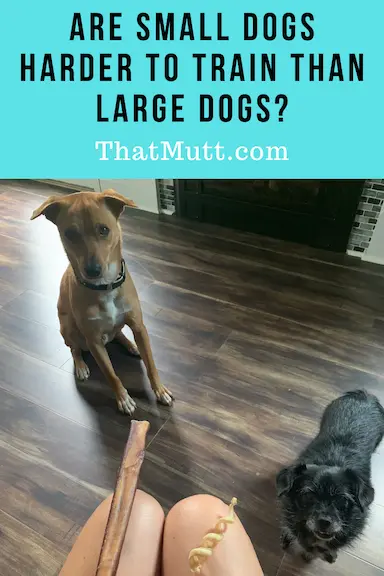
Training a small dog vs a large dog
Are you ready to take a peek behind the scenes with me as a dog walker? For starters, I can tell you that out of the 200+ dogs I’ve worked with over the years, about 1/3 are small dogs. Of those, only about 10% are well behaved. These 10% are the ones who live in homes with fairly well-behaved larger dogs.
Now, let’s take a look at the different behaviors I’ve most commonly experienced in small vs large dogs.
Behaviors in small dogs vs large dogs:
| Common behaviors in small dogs | Common behaviors in large dogs |
|
|
|
|
|
|
|
|
|
|
|
|
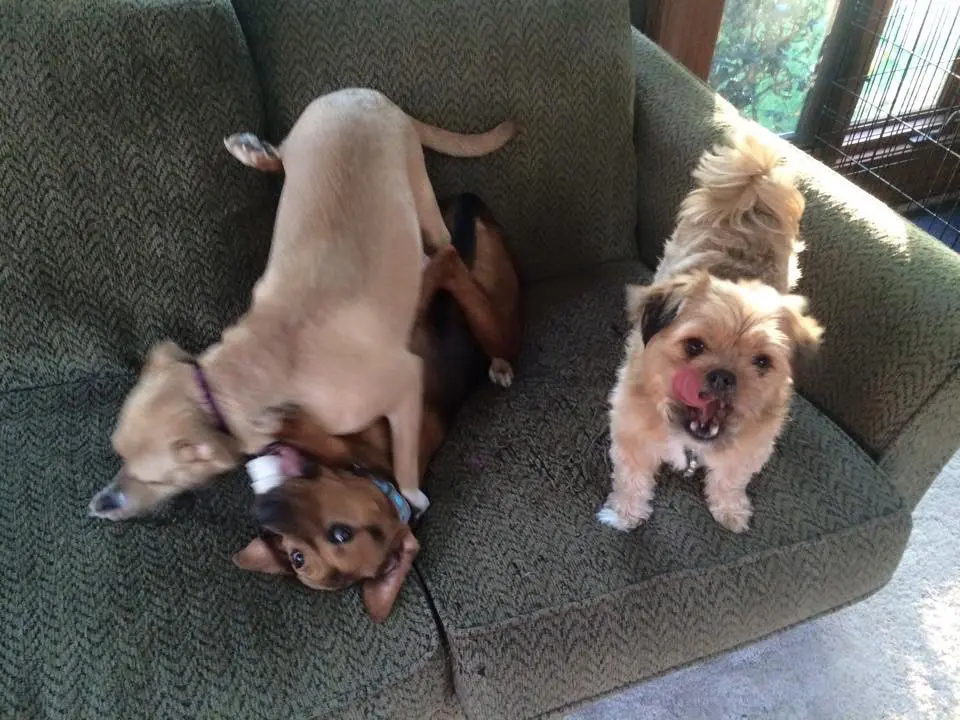
Small adorable but unruly small dogs on a couch vs calm German shepherds on a couch.
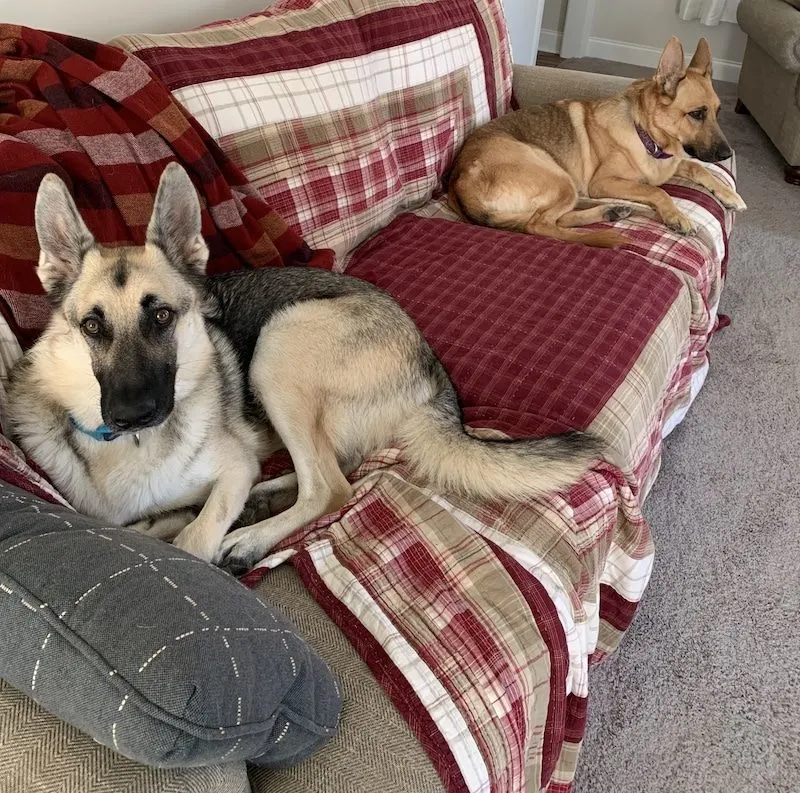
Small dog pulling on a leash vs a well-behaved larger dog on a walk.
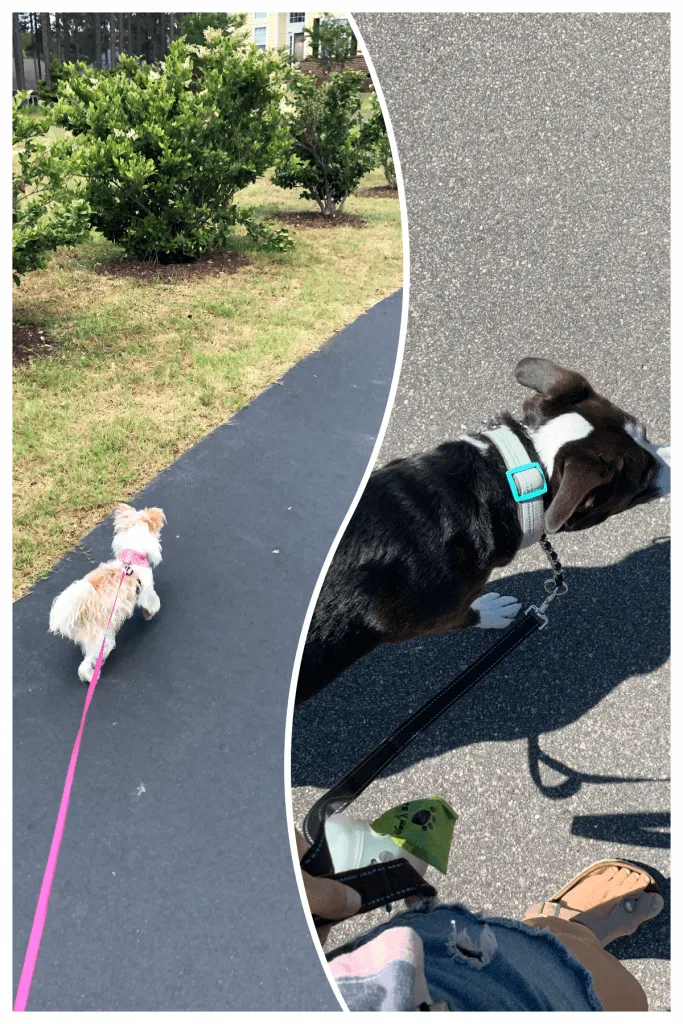
Are small dogs harder to train than big dogs? (Not likely!)
Judging from these behaviors, it’s easy to assume that small dogs are harder if not impossible to train than larger dogs. But what’s important to understand is that all dog training starts with us humans wanting to train our dogs.
After all, dogs come into this world essentially as a blank canvas waiting for our human input to show them what we expect of them.
And now we’re touching on one of the root causes of untrained small dogs, which is that people expect different behaviors from different dogs. I’m generalizing here, but folks typically want their small dog to be a lapdog, and their large dog to be a perfectly well-behaved pet guard dog.
Consequently, lapdogs don’t get any obedience training. That’s exactly why they typically don’t have any boundaries and run their homes.
Now, there are small-dog owners who find some of their pups’ excessive tendencies annoying. But, they put up with it because they don’t think the behavior can be stopped.
At the same time, they also don’t go out of their way to find a solution because the problem behavior is more manageable with a smaller dog. A small dog can’t do as much damage, right?
But it’s important to understand that training standards for small dogs are actually similar to those of large dogs. That’s because both belong to the same species, have four legs and two ears and enjoy pleasing their humans, regardless of size.
Yes, you guessed it, I’m alluding to the fact that all dogs can be trained and that it’s not harder to train small dogs!
What does the research say, are small dogs harder to train? We’d love to hear any research you have found. We found the article below that says smaller dogs are less likely to be trained, but it’s not because they are harder to train. It’s because people are less likely to train them!
Article from Psychology Today.

Small dogs can be trained just like large dogs
It can take some getting used to the concept that your small dog can be trained just like a large dog. To help you with this, you can trick your brain a little.
Here’s what you can do: Just pretend your 10 lb pup is a 60 lb Labrador, or better yet how about a 100 lb Mastiff?
You don’t want him to jump on your guests and pull your arms out of your sockets while out on a walk, right? You also won’t pick him up and carry him around in your arms when he starts barking.
What it comes down to is that you don’t want to allow any behavior in your small dog that you wouldn’t accept in a large dog.
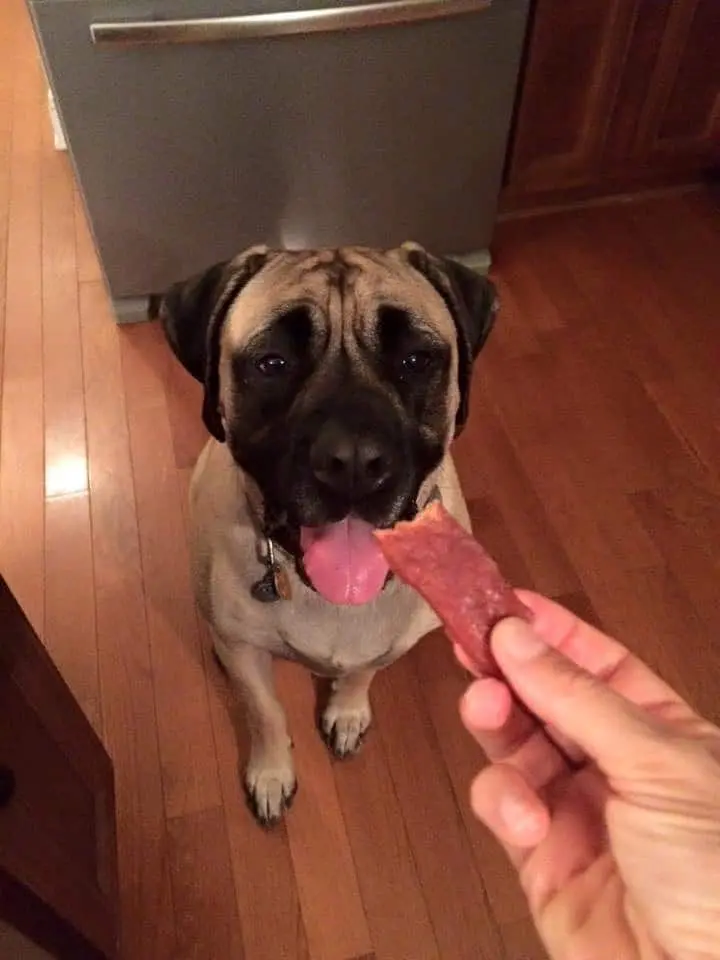
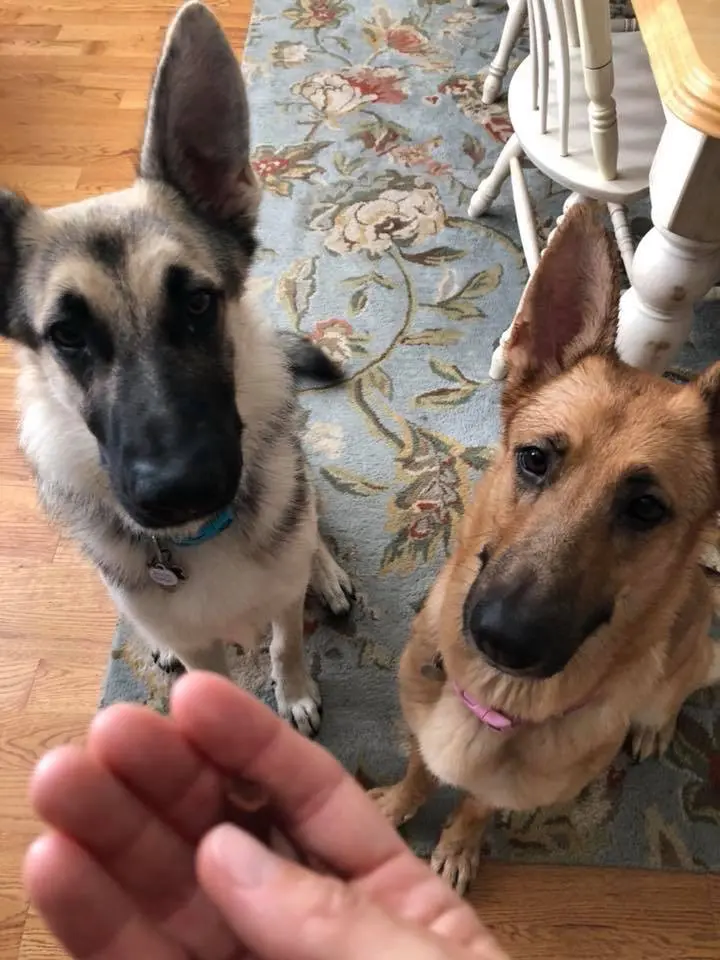
Next, make a list of behaviors and goals you would want your large dog to exhibit, then transfer them onto your small dog.
The first few items on your list might consist of obedience commands like “sit,” “down,” “stay,” and “come.” Next up could be polite greeting of people who come to your home, no jumping or leg humping, and polite leash manners.
This little guy below is Normie, a Shih-Tzu who’s half blind but still happy to perform a sit pretty trick in exchange for a treat!
Normie lives with his big German shorthaired brother Tab, which is a reason why he’s a well-behaved little fellow. Their owner has the same training standards for both dogs. The dogs are stretching in sync in the picture below.
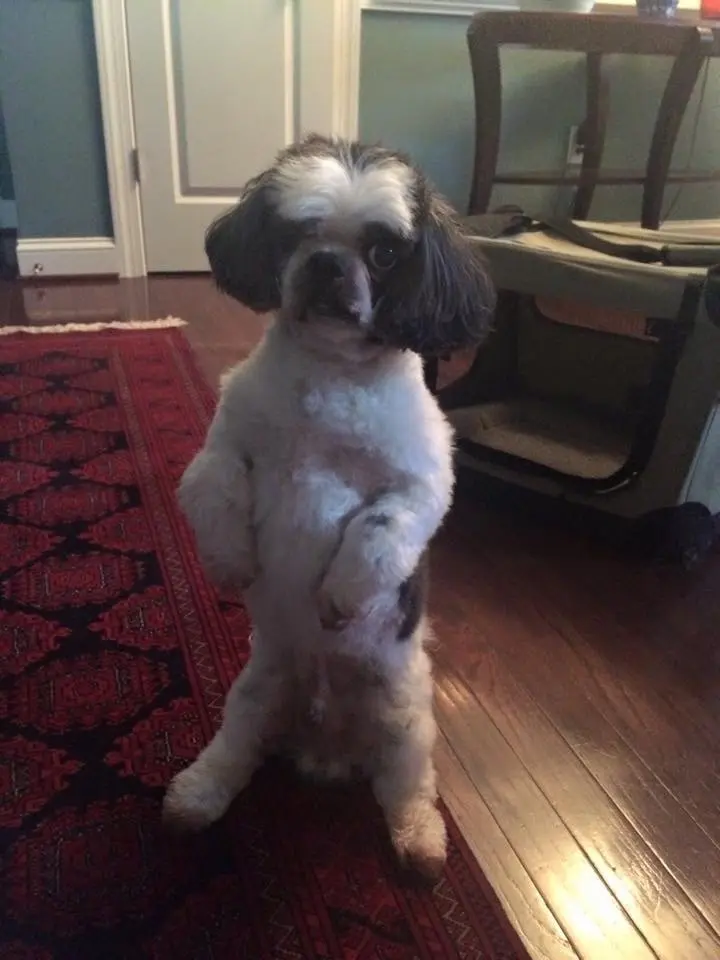
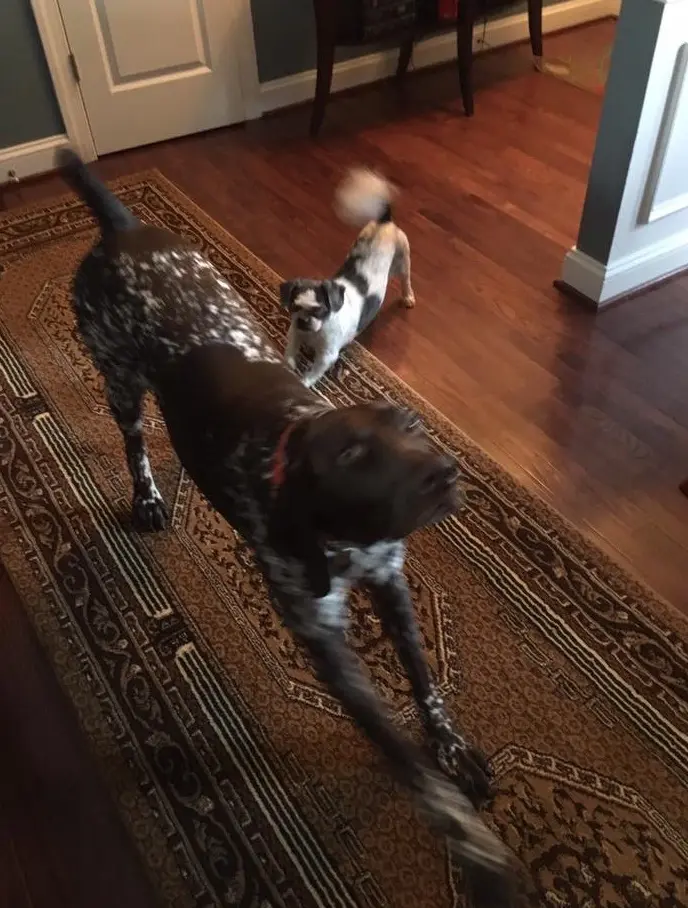
Now let’s take a look at how to check the training items off your list!
Resources for training a small dog:
- First of all, pick up a dog training book or ebook like Lindsay’s 50 Dog Training Tips – Your Training Problems Solved Now. She provides tons of down-to-earth dog training tips and guidance on your journey to a well-behaved dog. Use code MP20Mutt for 20% off.
- Additionally, sign up for a basic obedience class at a local dog training facility. The benefits of taking a class are the socialization aspect, instructions and supervision from a professional dog trainer, and the financial commitment you make. It’ll keep you motivated towards your goal of finishing the class and keeping up with your weekly homework training assignments.
- Basic dog training tools are another good investment. Tools that come to mind are training treats, a treat bag, a non-retractable, 4-6 foot standard leash, and potentially a crate if you wish to crate-train your pup.
Why dog training tools are helpful
Simply put, dog training tools make your life easier!
A treat bag is so much more convenient than digging into your pockets for treats. It holds your high-value treats like cut up chicken or hot dog, or anything fishy or smelly like green tripe treats. The smellier, the better because your dog will want to get to that smelly goodness!
Just make sure to hand out TINY food rewards because small dogs fill up fast. You also don’t want them spending too much time eating the treat. Get Mighty Paw’s treat bag HERE.
The only time I recommend a retractable leash is for recall training purposes, meaning when you teach your dog to come when called. For other activities like walks, hikes, and trips to the vet, groomer, or pet-friendly stores, I recommend using a standard leash that won’t get you or your dog tangled or hurt.
The reason why I’m suggesting these approaches is because they’re exactly what I did when I first started learning about dog training.
I bought several dog training books, armed myself with above listed dog training tools, AND signed up for a basic obedience class. My boxer-mix pups turned out to be very well-behaved, so it was money well spent!
Reasons to train your small dog
Much like training standards, the benefits of training small dogs are the same as those of training large dogs:
- Polite behavior. This is the most obvious benefit. Everyone appreciates a well-behaved dog, regardless of size.
- Bonding. Spend quality training time with your dog and you’ll create a stronger relationship with him as he looks to you for direction and guidance. You’ll be able to effectively communicate with your pup!
- Mental exercise. Your dog exercises his brain when he concentrates on figuring out what you’re asking of him. This contributes to a more balanced state of mind and allowing him to relax calmly. Dogs who aren’t asked to exercise their brain are more imbalanced and have pent-up energy as a result.
- Safety. You can literally save your dog’s life with a solid recall and the ability to sit or lie down on command. For example, it can keep him from running into a busy street or picking a fight with the neighbor’s dog.
Now we’d like to hear from you!
Now that I’ve shared my thoughts on why a lapdog can be a well-behaved lapdog, we’d like to hear from you!
Have you successfully trained a small dog? Also, please ask us any questions you might have in the comment section!
But first, let’s do a quick recap:
- All dogs benefit from obedience training, regardless of size.
- Small dogs can and want to be trained, just like big dogs.
- Dog training is easier with the right support system.
- Use books, dog training classes and tools in your favor.
- Trick your brain into thinking of your small dog as a big one.
Happy training!
Barbara Rivers writes regularly for That Mutt. She is certified in raw dog food nutrition from Dogs Naturally Magazine and the author of three ebooks about balanced raw dog food. She is a blogger at K9s Over Coffee.

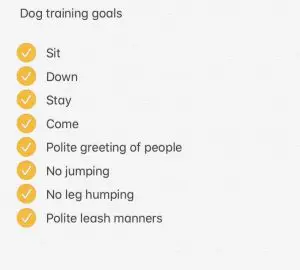
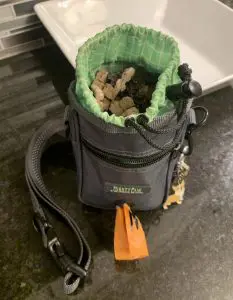
Rose
Thursday 9th of December 2021
I've owner and trained quite a few dogs in my life and my small dogs were for the most part as well behaved as my large dogs. I never tolerated bad behavior from any of them, until I got my kids a little cocker spaniel. I'd owned very well behaved cocker spaniels before but this one was, more difficult to house break, jumped, was hyper. I didn't let her bark,I had enough of that and bought the first ecollar for barking I've ever owned. I'd used them in the field before but not to discourage bad behavior! The reasons why were really simple, my kids were hyperactive, as in ADHD and they'd run around like a yappy little dogs, how could she not? Getting her not to potty in the floors and not to jump was again directly related to the kids, they didn't discourage jumping, so why stop? They'd take her from the kennel as I made dinner, went to the bathroom etcetera, so why not pee in the giant space of the living room, going outside stopped the fun! I swear that I spent nearly 15 years of not being able to go to the bathroom without the door open to keep an ear out for their misdeeds! How was I ever going to get her to behave! I eventually got her to start acting better by taking them to dog shows and letting them compete with her! They were motivated to teach her good manners so she could win! I enrolled them in dog training classes with her, until they could train her! She had decent behavior,not perfect, she remained more excitable than any other dog but she didn't bite,walked on the leash nicely, had fair recall and did well with basic obedience. The next dog we got was a Rhodesian ridgeback and they're a difficult dog to train if you don't have very good training skills, so I put them in puppy obedience 6 times! I also trained him on the side because he was too big too fast to let things go! We did lure courses with him until he tore his ACL chasing a squirrel in the yard. But he's 15 now and he's still better behaved than the cocker spaniel was. So if you ask me it is probably 1.inexperienced owners 2. Not spending enough time with the dogs basic obedience because they are tiny and cute and you don't really wake up 3 months after you get them to find your cute puppy is a moose! By the time they're out of control people don't have a clue how to fix it and if you tell them a large amount will get their tiny feeling to match those tiny dogs hurt! I got my niece an adorable little papillon and I taught it basic obedience for her because she has 4 little kids! She found the dog too much and her mother loved it so it became her mother's dog.It learned to door dash, especially when my niece and her children came over, instead of correcting the behavior they let it go, she learned to chase cars and then she died of course! Because even though I would have helped her, and they wouldn't have let her run after people barking if she'd weighed 75Lbs instead of 7lbs they just didn't see how they were setting her up to die! I haven't been talking to them, I find it difficult to excuse their negligence even though they weren't able understand the consequencesof not training her before they killed her! That is the problem with a lot of people!
Jj
Sunday 3rd of October 2021
Don’t jump on me in disgust but many people don’t mind a small dog jumping. It doesn’t hurt especially if nails are trimmed. But I’m going to tell you pulling isn’t fun when a small dog does it but they can’t pull you or just barely. And that eliminates the need for training tools. Just don’t go. They’ll get the point over time. I’ve seen many large dogs really pulling more so the lighter the owner is and it’s a whole different ballgame. That said I don’t think unruly behavior is cute. I do think puppies and newly adolescent dogs can bite from teething or excitement and while it needs correction it’s not something to get nutty about just correct. Also, Nipping may not be protection but anxiety so I’d never just laugh it off. You have to know where it’s coming from. I don’t think small dogs are that much worse behaved but I’ve noticed a differential. If you’re talking about the smallest dog, purebred chihuahuas really require training or they’ll typically not behave well around other dogs and people. Also sometimes a dogs behavior isn’t the owners fault. I do believe dogs all need some training but there is a personality and genes you’re working with.
Shanna
Wednesday 15th of April 2020
I have a small dog (poodle, shih tzu, maltese mix) from a shelter that is very well trained (thanks to me!) and highly intelligent. I had no idea so many people assumed smaller dogs were untrainable or less intelligent than larger dogs. I think the issue is that, yes, many small dog owners let their dogs get away with certain behaviors, but also that there is this weird stigma attached to smaller dogs. I don't think small dogs should be viewed as less intelligent simply because of the failings of dog owners themselves. My dog is trick titled, knows advanced obedience, walks great on the leash, and is working his way up in agility. He isn't "special" because of this in comparison to other small dogs. It just means his owner put in the work and because of the bond I've built with him it hasn't been any more difficult than training a larger dog. Just means I have to bend down a bit more or use a variation of training tools to remedy the height difference. I wish more people could see how versatile, smart, and fun small dogs are!
Jj
Sunday 3rd of October 2021
@Lindsay Stordahl, I think dogs also deserve to be dogs. I’ve never been able to figure out if highly trained dogs are happier or their owners are.
Lindsay Stordahl
Wednesday 15th of April 2020
Aww, what a lucky dog!
regs
Thursday 5th of March 2020
Reading at the comment gives me an idea wither I choose small or big dogs to be my pet, thanks for your blog.
Mitch
Sunday 1st of March 2020
I have thought about this a lot myself as it happens. Personally, I do think that its easier to train a larger dog. I have a few reasons for this. Firstly, if you search for the most intelligent dog breeds, you will find that the top 10 are all larger dogs. With the exception of the Papillon breed that is, which are not tiny like a Chihuahua, just a bit on the smaller side. Secondly, if you take notice of all the dogs used for police work, service dogs and hunting dogs, you can see that they are all medium to large dogs. I also have read somewhere that bigger dogs are naturally more intelligent. I think it was at this site here which is actually about the age of dogs, but I'm sure there's a section in there that talks about dogs intelligence in correlation with their size. https://graduatedogs.com/training-older-dogs/
Jj
Sunday 3rd of October 2021
@Mitch, poodles come in small sizes too and papillons aren’t big. And the list of smartest breeds is somewhat subjective. I think we need to add medium size here to really define which size is easiest to train if any.